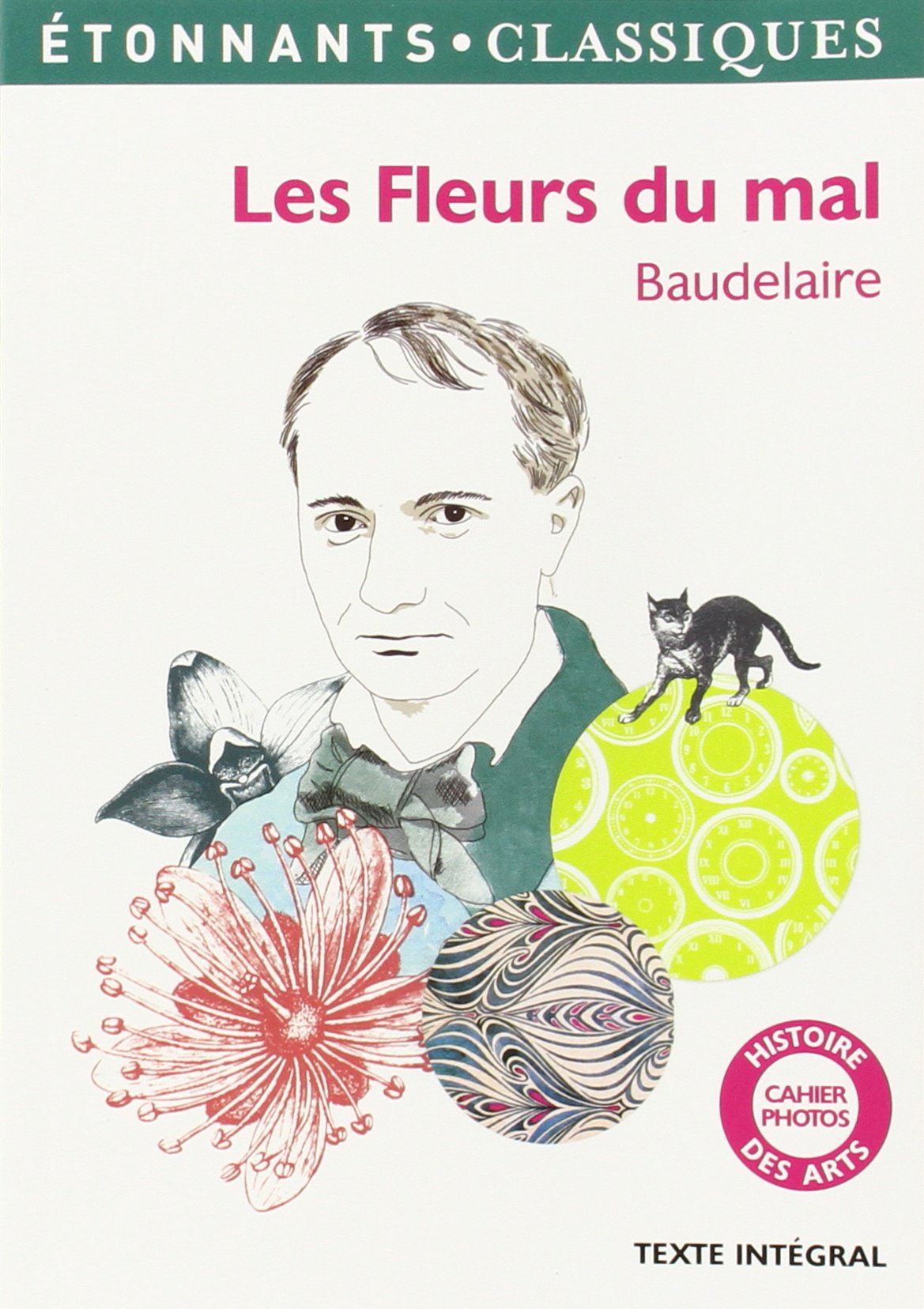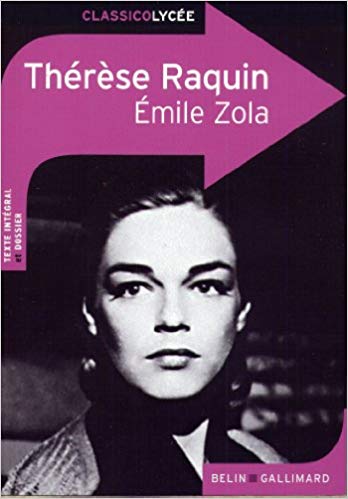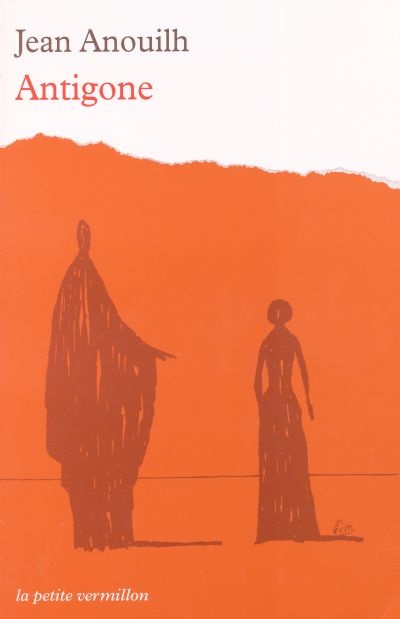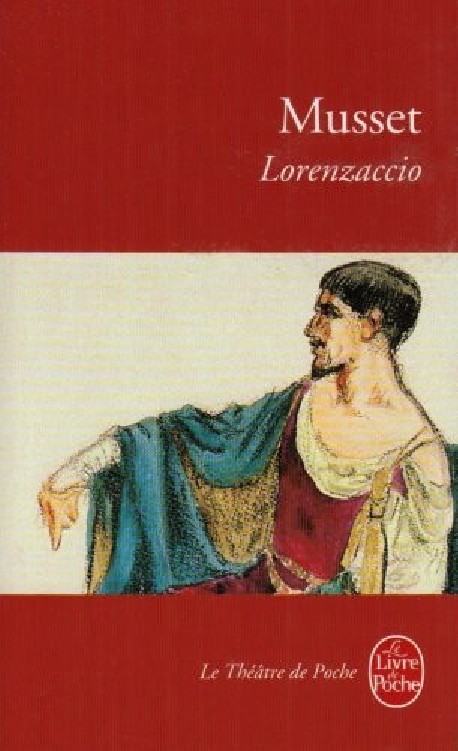That's it, it's back to school. And with the school year starting again, the bibliography that goes with it! At JustFocus, our editors have put together a small selection of the "mandatory" books they loved!
Julie: The Flowers of Evil – Baudelaire

I read The Flowers of Evil for the first time at the age of 14. I was already passionate about poetry, but I was also in third grade, a sensitive time in adolescence. Baudelaire's words were incredibly helpful: he recounted in his poems moods that were not unknown to me. The near-perfect depiction of suffering, disgust with evil, and self resonated with my college mind. The themes evoked can blend into adolescence as a whole because the obsession with death and the aspiration for an ideal world were also my only concerns at the time. Some of his poems may be crude or immoral, but the poet's real project is "to extract beauty from evil." The second reading was done in preparation for the literary baccalaureate, in first class, and this time I was fascinated by the leitmotif of the flight of time that seemed to me to find in each poem I read (The Enemy for example "Time eats life"). Finally, I think it is the way Baudelaire talks about women that made his poetry so interesting to me. The power of his poems results from a modern construction, following an upward movement followed by a brutal fall. "In this atrocious book, I have put all my soul" said the poet about his Flowers. Personally, he bewitched me.
Kler: Thérèse Raquin (1867) – Emile Zola
 Entry into second: literary program rather busy, and also rather interesting. Among the various enriching readings I was able to do during this school year, I would like to thank my teacher at the time for making me discover one of Zola's most beautiful works: Thérèse Raquin. Once I started reading, I could never stop. It was the first time in my life that I read a novel by Zola, who is an author with whom one can quickly have preconceptions. Reading "too classic", too "complicated to understand" or many other misconceptions. All this is totally: false. Precisely, Zola's writing is so tenderly worked and rich that it makes the reading incredibly fluid. And then, what a story! The first pages of the novel perfectly describe a small shabby street where Thérèse and her husband live. So well described that one would believe it. I can still have in mind the exact image of this moment thanks to Zola's magic words. It was one of the first stories I read that gave me so chilling. It is a sad, tragic and melodramatic story, as Zola knows how to write them so well. The fate of a woman who nothing predestined would end like this. If you want to (re)discover Zola and you have never read this masterpiece before, I can only give you one piece of advice: Go for it!
Entry into second: literary program rather busy, and also rather interesting. Among the various enriching readings I was able to do during this school year, I would like to thank my teacher at the time for making me discover one of Zola's most beautiful works: Thérèse Raquin. Once I started reading, I could never stop. It was the first time in my life that I read a novel by Zola, who is an author with whom one can quickly have preconceptions. Reading "too classic", too "complicated to understand" or many other misconceptions. All this is totally: false. Precisely, Zola's writing is so tenderly worked and rich that it makes the reading incredibly fluid. And then, what a story! The first pages of the novel perfectly describe a small shabby street where Thérèse and her husband live. So well described that one would believe it. I can still have in mind the exact image of this moment thanks to Zola's magic words. It was one of the first stories I read that gave me so chilling. It is a sad, tragic and melodramatic story, as Zola knows how to write them so well. The fate of a woman who nothing predestined would end like this. If you want to (re)discover Zola and you have never read this masterpiece before, I can only give you one piece of advice: Go for it!
Elya: The game of love and chance – Marivaux
 The game of love and chance was a real favorite of my high school years. It is a play in 3 acts all in prose, easy to read and refreshing. This comedy tells the story of M.Orgon who wants his daughter Silva to marry the son of one of his friends, of the same social class as him. But Silvia, a lover of freedom, has no desire to get married. She wants to learn more about her future husband, Dorante. She decides to observe him by taking the place of her servant Lisette. That sounds like a great idea. However, she does not know that he had the same idea as her. She quickly lends herself to the game of being a simple servant and gradually falls under the spell of Dorante under the disguise of her valet Harlequin. For her part, Lisette falls in love with Harlequin as Dorante, the fiancé of her mistress. The characters are moving by their sincere and reciprocal love and by their forgetfulness of etiquette and social classes. It is on this misunderstanding, fruit of love and chance that the destiny of 4 colorful, fun and endearing characters is based.
The game of love and chance was a real favorite of my high school years. It is a play in 3 acts all in prose, easy to read and refreshing. This comedy tells the story of M.Orgon who wants his daughter Silva to marry the son of one of his friends, of the same social class as him. But Silvia, a lover of freedom, has no desire to get married. She wants to learn more about her future husband, Dorante. She decides to observe him by taking the place of her servant Lisette. That sounds like a great idea. However, she does not know that he had the same idea as her. She quickly lends herself to the game of being a simple servant and gradually falls under the spell of Dorante under the disguise of her valet Harlequin. For her part, Lisette falls in love with Harlequin as Dorante, the fiancé of her mistress. The characters are moving by their sincere and reciprocal love and by their forgetfulness of etiquette and social classes. It is on this misunderstanding, fruit of love and chance that the destiny of 4 colorful, fun and endearing characters is based.
Cécile : Au bonheur des Dames – Émile Zola
 In 1864, Denise arrived in Paris with her two brothers. A poor peasant and orphan, she will find a job as a saleswoman in the department store Au bonheur des Dames. This huge bazaar is the great innovation of this decade: several shops grouped under the same brand. The director of Le Bonheur des Dames, Octave Mouret, is a young seducer with a keen business sense. The success of this department store greatly displeases the local merchants. Octave Mouret and his new concept are killing these small shops. In the midst of this trade war, Denise will grow up and learn to manage her life as a young woman. She will resist the jealousy of her colleagues, the advances of her boss and the blows of fate. Denise's story spans five years. The reader can therefore fully appreciate the evolution of the characters and their environment. Faithful to his naturalistic methods, Émile Zola delivers a detailed portrait of the world of department stores. Every cog in the commercial machine is analyzed; There are interesting parallels with today's advertising and commerce. Zola's strength is also his characters. The secondary characters (the Baudu, Pauline, Henri) are not just elements of scenery: they have their own story and life. The main characters are complex, the events that affect them move us. Au bonheur des Dames is one of the few novels by Émile Zola that ends well. The characters are endearing. The slow pace of history (over five years) suggests that we are really witnessing a part of life from an entire era.
In 1864, Denise arrived in Paris with her two brothers. A poor peasant and orphan, she will find a job as a saleswoman in the department store Au bonheur des Dames. This huge bazaar is the great innovation of this decade: several shops grouped under the same brand. The director of Le Bonheur des Dames, Octave Mouret, is a young seducer with a keen business sense. The success of this department store greatly displeases the local merchants. Octave Mouret and his new concept are killing these small shops. In the midst of this trade war, Denise will grow up and learn to manage her life as a young woman. She will resist the jealousy of her colleagues, the advances of her boss and the blows of fate. Denise's story spans five years. The reader can therefore fully appreciate the evolution of the characters and their environment. Faithful to his naturalistic methods, Émile Zola delivers a detailed portrait of the world of department stores. Every cog in the commercial machine is analyzed; There are interesting parallels with today's advertising and commerce. Zola's strength is also his characters. The secondary characters (the Baudu, Pauline, Henri) are not just elements of scenery: they have their own story and life. The main characters are complex, the events that affect them move us. Au bonheur des Dames is one of the few novels by Émile Zola that ends well. The characters are endearing. The slow pace of history (over five years) suggests that we are really witnessing a part of life from an entire era.
Alexia : Antigone – Jean Anouilh
 Antigonus was the daughter of Oedipus and Jocasta, rulers of Thebes. After Jocasta's suicide and Oedipus' exile, Antigonus' two brothers, Eteocles and Polynices, killed each other for the throne of Thebes. Creon, Jocasta's brother is – as such – the new king and has decided to offer burial only to Eteocles and not to Polynices, described as a thug and traitor. He warns by an edict that anyone who dares to bury the renegade's body will be punished with death. No one dares to defy the ban and Polynices' corpse is abandoned to the sun and scavengers.Only Antigone refuses this situation. Despite her uncle's prohibition, she went several times to her brother's body and tried to cover it with dirt. Ismene, his sister, does not want to accompany him because she is afraid of Creon and death.Antigone is caught in the act by the king's guards. Creon is forced to carry out the death sentence to Antigone. After a long debate with her uncle about the purpose of existence, she is condemned to be buried alive. But just as the tomb is about to be sealed, Creon learns that his son, Hemon, Antigone's fiancé, has let himself be locked up with the one he loves. When the tomb is reopened, Antigone hangs herself with her belt and Hemon, spitting in her father's face, cuts her belly with her sword. Desperate for the disappearance of the son she adored, Creon's wife Eurydice slit her throat.
Antigonus was the daughter of Oedipus and Jocasta, rulers of Thebes. After Jocasta's suicide and Oedipus' exile, Antigonus' two brothers, Eteocles and Polynices, killed each other for the throne of Thebes. Creon, Jocasta's brother is – as such – the new king and has decided to offer burial only to Eteocles and not to Polynices, described as a thug and traitor. He warns by an edict that anyone who dares to bury the renegade's body will be punished with death. No one dares to defy the ban and Polynices' corpse is abandoned to the sun and scavengers.Only Antigone refuses this situation. Despite her uncle's prohibition, she went several times to her brother's body and tried to cover it with dirt. Ismene, his sister, does not want to accompany him because she is afraid of Creon and death.Antigone is caught in the act by the king's guards. Creon is forced to carry out the death sentence to Antigone. After a long debate with her uncle about the purpose of existence, she is condemned to be buried alive. But just as the tomb is about to be sealed, Creon learns that his son, Hemon, Antigone's fiancé, has let himself be locked up with the one he loves. When the tomb is reopened, Antigone hangs herself with her belt and Hemon, spitting in her father's face, cuts her belly with her sword. Desperate for the disappearance of the son she adored, Creon's wife Eurydice slit her throat.
My opinion:
As stated in the summary, the story is not very joyful. However, it is exciting! It allows us to immerse ourselves in ancient history and discover certain traditions. Jean Anouilh remained quite faithful to Sophocles' text, it is lighter than the original which allows it to be studied from college. It is both a brotherly love story and a family story that mingle in a political power struggle. In addition, the perfect cocktail of tragedy! Simple to read and fast, if you want to start reading theater this play is for you…
Salomé: Lorenzaccio – Alfred de Musset
 The poet and playwright wrote Lorenzaccio in 1834, a work oscillating between comedy and drama inspired by real events. While depicting sixteenth-century Italy, the plot focuses on the misdeeds and the particularly tragic fate of Lorenzo de' Medici, a young idealist aspiring to a new Republic, who murders his own cousin Alexander de' Medici. As Lorenzo's project evolves, some subplots are put in place: Musset wants to make Lorenzo the main character surrounded by a multitude of characters, each bringing a new light on the personal and political stakes of this conspiracy. The Florentine met a tragic end by being put to death in turn. A denouement mixed with the sublime and the grotesque.
The poet and playwright wrote Lorenzaccio in 1834, a work oscillating between comedy and drama inspired by real events. While depicting sixteenth-century Italy, the plot focuses on the misdeeds and the particularly tragic fate of Lorenzo de' Medici, a young idealist aspiring to a new Republic, who murders his own cousin Alexander de' Medici. As Lorenzo's project evolves, some subplots are put in place: Musset wants to make Lorenzo the main character surrounded by a multitude of characters, each bringing a new light on the personal and political stakes of this conspiracy. The Florentine met a tragic end by being put to death in turn. A denouement mixed with the sublime and the grotesque.
A mixture of drama, romance and comedy (comic in character, situation but also manners), the play is a particularly rich work that offers a real reflection on political engagement (murders of Julien Salviati, favorite of the Duke and Alexander de' Medici), the complexity of love (the greedy libertinism whose consequences Alexandre minimizes, the pure and devoted but remorseful love of the Marquise de Cibo), good and evil (the cruelty of the Medici symbolized by the murder of the pure Louise Strozzi, the kindness of Lorenzo which earned him the devotion of his valet Scoronconcolo).
The editorial staff of Just Focus wishes you a good reading!






































